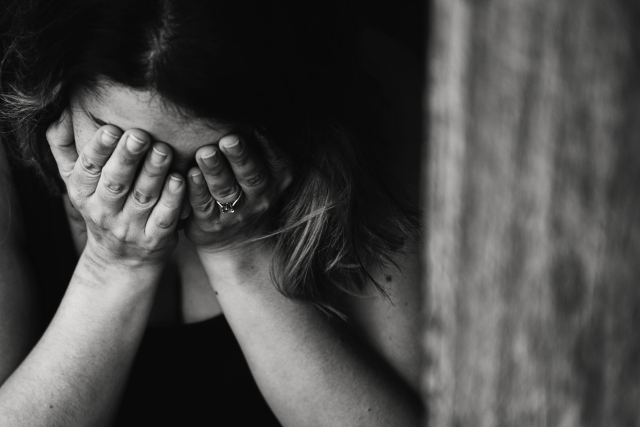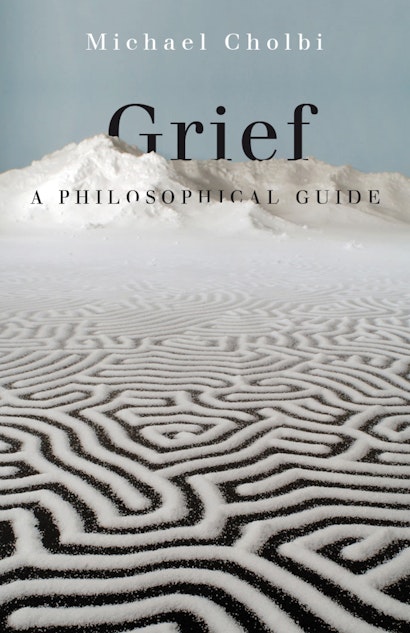In a span of less than two years, Covid-19 infections have killed 4.5 million people worldwide. Experts estimate that each person who dies is significantly grieved by nine others. Do the math, and that means 40 million more grief episodes than normal over that span. Add to this the ambient sense of loss many have felt in the pandemic—the “collective grief” at losing the ways of life familiar to us pre-pandemic—and we face a flood of grief unlike any the world has seen since the world wars of the previous century. The pandemic also interfered with grief itself, barring grieving individuals from physical contact with dying loved ones, making ‘Zoom funerals’ the temporary norm for shared mourning, and in some cases, disrupting the rituals of burial and interment that lend integrity to shared grief and dignity to the deceased.
Some experts describe the grief crisis we now face as a second pandemic, a “grief pandemic” layered on top of, but lagging ever so slightly behind, the Covid pandemic itself. The main indicator of this second pandemic is growth in depression, anxiety, and other affective mental disorders.
I part ways with these experts: Calling the grief-related challenges we now face a “grief pandemic” is well intentioned. Such epidemiological language helps underscore the urgency and ubiquity of the grief caused by Covid. But categorizing these challenges as a “pandemic” is misleading, and to my eyes, likely to do more harm than good.
For one, grief isn’t an infectious condition that spreads from person to person. It is instead a profoundly personal, even idiosyncratic, psychological response to the death of someone who matters to us. One person’s death can lead to many instances of grief, as when siblings each grieve the death of their parent. Yet grieving people aren’t vectors of disease, and we should neither engage in social distancing to avoid ‘catching’ grief nor should we self-isolate after contact with the grieving. Indeed, grief is not a disease at all. Grief is the emotional equivalent of an immune response, our psyche’s way of alerting us to the death of someone in whom we are deeply emotionally invested. The pains of grief draw our attention to this death, signalling to us that we now need to figure out how to live in a world without the deceased. The fact that we grieve is thus not an indication of poor mental health but a sign that our psyches are functioning as they should. The widespread grief resulting from the Covid pandemic is thus a healthy reaction to a sick world.
To say that we face a grief “pandemic” also overlooks the positive ethical role of grief in our lives as a whole. Grief responds to a universal of human life: Like us, those that matter to us are mortal. Their deaths are of course distressing, but grief is our central emotional resource in figuring out how to live in their absence. In this respect, grief presents us an opportunity to discover how we can live well in ways that continue our relationships with the dead but on new terms. It is painful, but a profoundly useful kind of pain.
To describe our plight as a “grief pandemic” is to apply medical language to a primarily ethical or spiritual phenomenon. That we are tempted to use such medical language is not surprising: As institutions such as organized religion have declined in influence in many societies, medicine has grown in influence, with more and more human problems recast as medical in nature. In some cases, such recasting is all to the good. In the not too distant past, substance addictions such as alcoholism were viewed as moral failures or character deficiencies rather than physiologically-based ailments. ‘Medicalizing’ substance addiction has led to better and more widely available treatments, as well as leading many societies to pivot away from viewing drug abuse as a criminal justice problem toward viewing it as a public health problem.
In the case of grief however, ‘medicalization’ portends greater dangers. How we talk about a phenomenon influences how human beings relate to that phenomenon, and to talk in terms of a grief “pandemic” risks pathologizing healthy grief while encouraging people (especially men, who are often apprehensive about acknowledging grief) to think of it as weak or shameful. Add to this that scientific evidence for the effectiveness for talk-oriented grief counselling is spotty, and it becomes clearer still that labelling the grief crisis a “grief pandemic” may exacerbate the very suffering we aim to address.
Does this mean medicine should play no role in how we respond to the flood of pandemic-related grief? No. On those atypical occasions when grief does lead to genuine problems with mental health, those problems should be professionally addressed. But even then, it’s crucial that grief isn’t the problem to be solved. Grief is instead a tool for solving the underlying problem presented by how to live with our human vulnerability and interdependence.
The temptation to see Covid-related grief as a second “pandemic” reflects our susceptibility to a false dichotomy: Every human challenge is either wholly individual, with each person left to wrestle with it on their own, or a shared challenge that we turn over to one of the few social institutions we still trust—medicine—to ‘treat.’ It is a sign of how thoroughly medicine has come to monopolize our social imagination that we cannot imagine the grief crisis as anything but a medical crisis. With grief, we need a third way.
This third way, I suggest, is radically pluralistic in its approach, requiring contributions from many directions. We will best manage this grief crisis if the friends, family, and loved ones of the grieving perform their traditional role of comforting and nurturing the grieving; if institutions such as employers recognize and accommodate the prevalence of Covid-related grief; if policymakers learn from the failures of the pandemic to better prepare for the waves of grief that may accompany future pandemics and other mass death events; and if societies fully enfranchise Covid-related grief, publicly documenting and honoring the dead in ways that they largely did not in the wake of the last great immunological crisis, the influenza pandemic of 1918. Individuals grieve, but only by acting in concert, rather than offloading our social responsibilities onto physicians, psychiatrists, and hospitals, can we ensure that our shared grief crisis will abate.
Michael Cholbi is Chair in Philosophy at the University of Edinburgh. He has written and edited many books, including Suicide: The Philosophical Dimensions. He is the founder of the International Association for the Philosophy of Death and Dying (IAPDD). Twitter @MichaelCholbi

